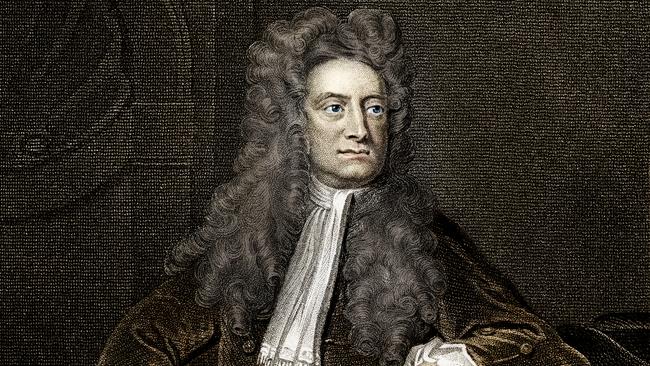Notebook sheds light on Sir Isaac Newton’s enigmatic Christianity
A manuscript, written by Sir Isaac Newton’s university roommate and assistant, is the earliest evidence of the mathematician’s theology.

Sir Isaac Newton’s “complex” views on Christianity can now be better understood after scholars gained access to his confidant’s notebook for the first time in almost 350 years.
The manuscript, written by John Wickins, Newton’s university roommate and assistant, is the earliest evidence of the mathematician’s theology.
It highlights Newton’s engrossment in mainstream questions about God’s foreknowledge and human free will at a time when England was staunchly Christian, and shows how he developed this into his unique theology.
The notebook, which had been under private ownership for two generations, was bought at auction for £63,000 last March and has been added to the library at Cambridge University, where Newton studied.
The notebook, which contains 12,000 words in English and another 5000 in Latin, is the most comprehensive record of Newton’s writings to be found in the past 50 years.
Jill Whitelock, head of special collections at Cambridge University Library, said: “The notebook adds significantly to our understanding of Newton and his writings, as well as casting new light on other manuscripts in the University Library. It is only through the documentary heritage represented by his scientific and mathematical papers that we see a full picture of Newton.”
The notebook contains one of Newton’s two university lectures and three letters to Wickins, whom he called his “very loving chamber-fellow”. Wickins acted as Newton’s amanuensis while functioning as his unpaid assistant and helping him to turn the rooms they shared from 1665 to 1683 into a makeshift laboratory. They worked together on Newton’s third telescope.
One Latin segment of the notebook records a university-mandated “disputation”, or debate, where Newton covered the contentious topic of the compatibility of God’s perfect foreknowledge with human free will.
Dmitri Levitin, of All Souls College, Oxford, and his coeditor of the Wickins notebook, Scott Mandelbrote, wrote that the topic “was a subject that was as difficult as it was sensitive”. In an article for the Times Literary Supplement, they added: “The difficulties were the classic problems of free will and evil: how could an all-powerful, omniscient God create a world in which humans had genuine freedom? At the same time, how could that perfect God not be the author of the sin which his creatures had committed?”
Newton came to privately hold unorthodox Christian beliefs and, by 1690, had dismantled the standard biblical proofs for the doctrine of the Trinity. He kept his idiosyncratic views – the focus of much rumour – to himself, a prudent decision considering his successor as professor of mathematics at Cambridge lost his post in 1710 for supporting similar views. It was not until after his death in 1727 that Newton’s unusual views became public knowledge.
The Times



To join the conversation, please log in. Don't have an account? Register
Join the conversation, you are commenting as Logout